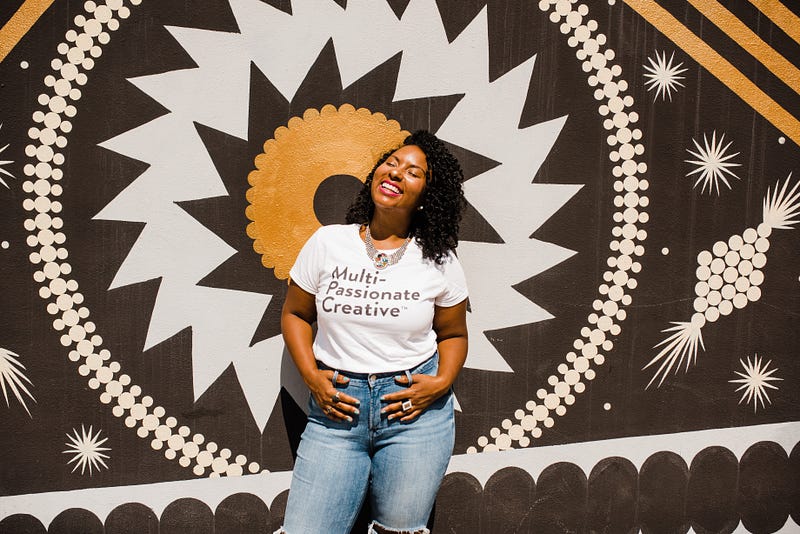Avoiding Common Traps: 3 Key Principles for Life Coaches
Written on
Understanding the Role of a Life Coach
Being a life coach for individuals with diverse passions is a rewarding experience. I cherish the chance to assist someone in transforming their life, a privilege I don’t take lightly.

Photo of the author, credited to the author.
My journey has included working alongside various coaches, allowing me to witness both exemplary and less effective coaching methods. These experiences have significantly shaped my approach and helped me pinpoint what I absolutely refuse to allow my clients to encounter during our time together.
3 Fundamental Principles I NEVER Compromise on as a Life Coach
1. I Never Assume to Know My Clients' Thoughts or Feelings
It’s not my responsibility to dictate what my clients are feeling or thinking. Instead, I focus on posing questions that guide them toward a deeper comprehension of their emotions and thoughts. This distinction is crucial.
During one call with a prominent life coach, I found myself sharing my challenges, only to be interrupted repeatedly as she insisted on telling me how I felt and what I thought.
Her statements were direct:
“You don’t trust yourself to navigate this. You think you lack the necessary skills. What you’re expressing as a desire for belief is actually a longing for hope.”
As I sat there trying to remain open to feedback, my discomfort grew. Fortunately, I’m assertive and decided to speak up. I informed her that her approach wasn’t resonating with me and requested she try a different method. This was a daring choice, especially in a group setting with many observers.
She was initially taken aback, but after a brief pause to collect herself, she shifted her technique to ask me questions that encouraged me to clarify my own thoughts and feelings.
I left that session feeling empowered, while she expressed gratitude for my willingness to advocate for my needs. This highlighted a vital lesson: sometimes, coaches need to be reminded when their methods aren’t effective.
Never telling my clients what they think or suggesting that I have a better grasp on their feelings than they do is a fundamental principle I uphold. I want to empower my clients to engage in self-inquiry, enabling them to develop a profound understanding of themselves. My ultimate goal is for them to graduate from needing my guidance.
2. I Never Foster Unhealthy Dependency
The relationship between coach and client can easily tip into unhealthy dependency, which I consciously avoid. I aim for my clients to feel genuinely supported, knowing that there’s someone who truly cares about their growth. However, I refuse to let them rely on me to feel whole or validated.
Here are some ways I prevent co-dependency:
- I do not offer one-on-one coaching. While many coaches thrive in that format, I find it conducive to dependency. Instead, I facilitate group coaching sessions where I lead discussions, allowing clients to learn from one another. This creates a supportive environment that diminishes the likelihood of dependency.
- As previously mentioned, I never dictate my clients’ thoughts or feelings. They should not have to depend on me for emotional clarity. I guide them through reflective questions to help them reach their own insights.
- I incorporate Human Design into my coaching. Understanding one’s Human Design can be transformative. New clients begin with an introductory lesson on Human Design, which allows them to gain self-awareness independently of our coaching sessions.
How learning your Human Design creates massive clarity with Krystal Woods
Understanding your Human Design can unlock profound insights about yourself, guiding your journey toward self-discovery.
By encouraging my clients to explore their Human Designs, I provide them with a framework for self-understanding that stands apart from our collaborative work. This enriches our sessions while fostering independence.
3. I Never Depend on Clients for My Self-Worth
Lastly, I ensure that I do not cultivate a dependent relationship from my side! This was a lesson learned over time.
I used to equate the number of clients I had with my effectiveness as a coach. If engagement levels fell short, I would internalize it as a reflection of my abilities and feel my program was lacking.
Eventually, I recognized I was falling into the trap of seeking validation externally.
Internally Sourced Confidence vs. Externally Sourced Confidence
- One is sustainable while the other is fragile.
This realization prompted me to practice self-coaching and develop beliefs about myself that are independent of my clients' actions.
Whether I have five clients enrolled or none, I maintain my belief that I am a capable life coach who assists multi-passionates in making significant changes. If my clients seem less active in our community, I trust that they’re living their lives and will return when they’re ready.
I don’t rely on my clients to define my self-worth; that responsibility rests with me!
D’Ana Joi is a life coach dedicated to empowering individuals with diverse passions and hosts the Multi-Passionate Mastery Podcast. She champions the idea that possessing multiple talents is a gift, helping creatives navigate the pressures of balancing their interests without burning out.
Why MOST Life Coaches NEVER START
Explore the common barriers that prevent aspiring life coaches from taking the plunge into their careers and how to overcome them.